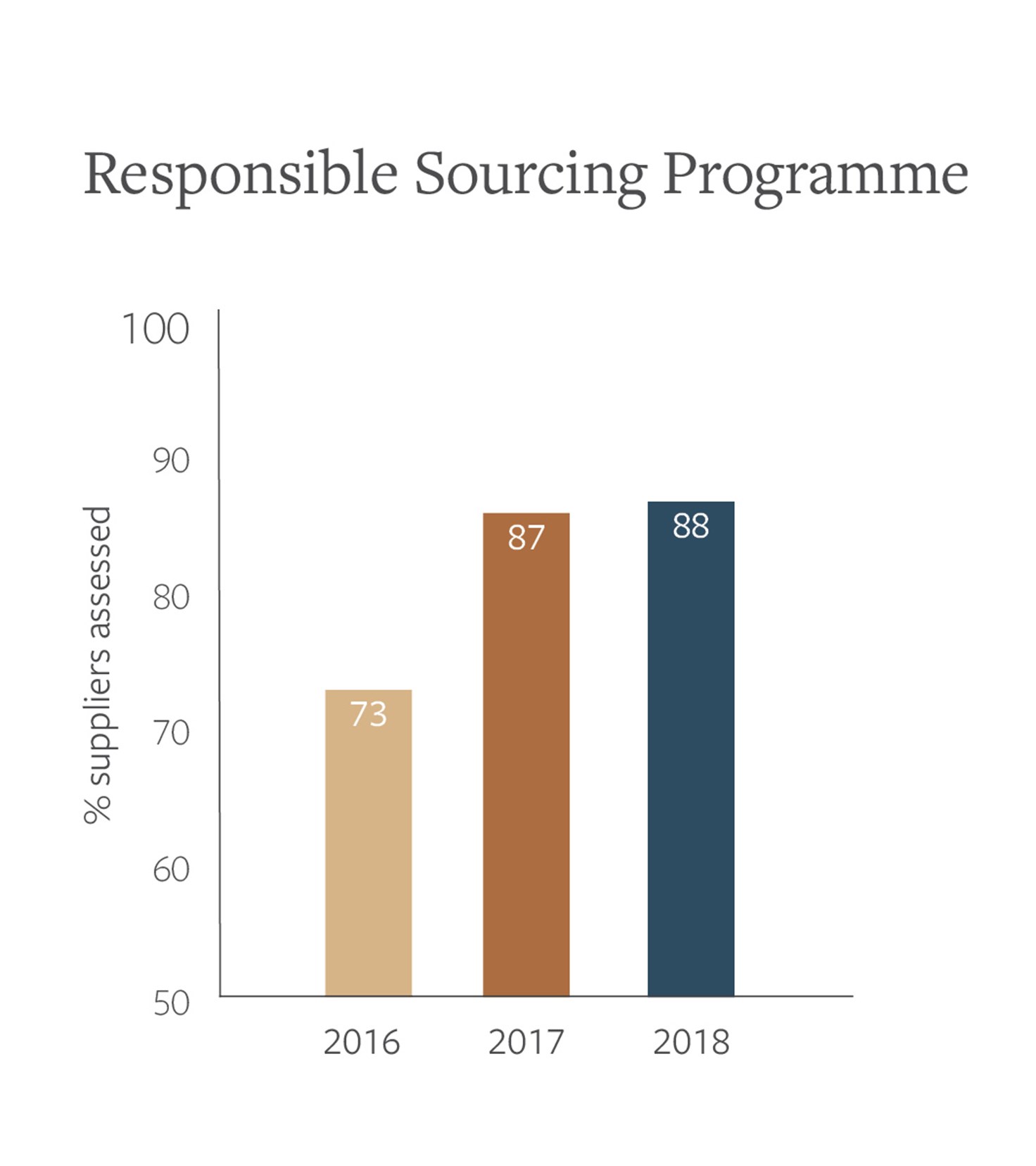The Responsible Sourcing Programme is made up of a few different elements including:
- A Corporate Social Responsibility (CSR) supplier information sheet, which helps us to understand a supplier’s social, environmental and ethical conduct
- Regular audits conducted by Procurement adherence to our Supplier Code of Conduct or its equivalent
- Quarterly sustainability evaluations as part of the overall Quality Management System evaluation
Setting high supplier standards
Palgaard’s sets out expectations for our suppliers for the protection of local communities and our stakeholders, including the suppliers themselves. The ten United Nations Global Compact (UNGC) principles thoroughly address human rights, labour, environment and anti-corruption.
The UNGC principles are adopted in our Supplier Code of Conduct, which is signed by suppliers falling within the scope of our Responsible Sourcing Programme. Where a supplier wants to use their own Code of Conduct, they can have this validated by Palsgaard to ensure it aligns with ours. Theirs can be used in lieu of our Code as long as it passes validation.
The Code requests that suppliers maintain accurate documentation of their business practices to show compliance with the principles outlined. If non-compliance is identified through an audit, we engage in an open dialogue with them to curate a plan outlining steps to meet compliance. Terminating a supplier contract is ideally the last resort, but it is a possibility.
In Malaysia, we introduced a Code of Conduct for sub-contractors with principles similar to our Supplier Code of Conduct. As mentioned, one of the challenges with global-scale supply chain management is the variation of business practices and regulations among countries and regions. This policy adds an additional layer of assurance for our procurement activities in Malaysia.





